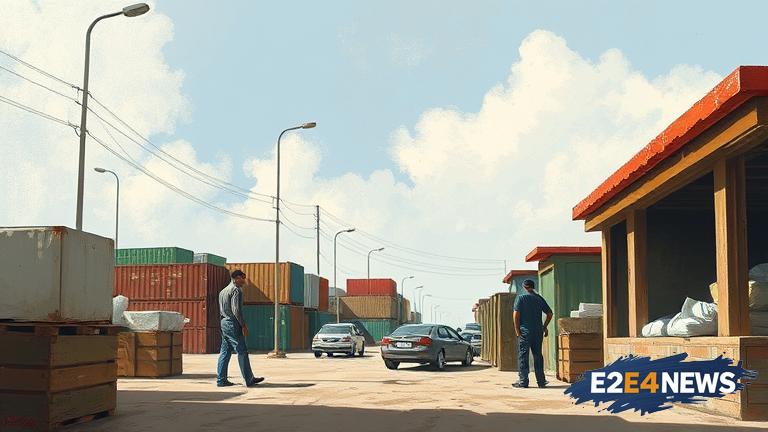In a significant development, Israel has announced plans to allow the controlled entry of goods into Gaza via local merchants. This move is expected to ease trade restrictions in the region and provide a much-needed boost to the local economy. The decision comes after months of negotiations between Israeli authorities and Palestinian merchants. The new arrangement will enable local merchants to import goods from Israel and other countries, subject to certain conditions and security checks. The Israeli government has stated that the move is aimed at improving the humanitarian situation in Gaza and promoting economic growth. The entry of goods will be facilitated through the Erez Crossing, which is the only pedestrian crossing between Israel and Gaza. The crossing has been closed for several years due to security concerns, but it is now expected to be reopened for the entry of goods. The Israeli military has announced that it will work closely with Palestinian merchants to ensure that the entry of goods is carried out in a secure and controlled manner. The move has been welcomed by Palestinian officials, who have described it as a positive step towards easing the blockade on Gaza. However, some critics have expressed concerns that the new arrangement may not go far enough in addressing the humanitarian needs of the people of Gaza. The Gaza Strip has been under a blockade since 2007, which has had a devastating impact on the local economy and living standards. The blockade has restricted the entry of goods, including food, medicine, and construction materials, leading to widespread poverty and unemployment. The new arrangement is expected to provide some relief to the people of Gaza, but it is unclear how effective it will be in addressing the underlying humanitarian crisis. The Israeli government has faced international criticism for its handling of the Gaza blockade, with many countries and organizations calling for an end to the restrictions. The United States has also expressed concerns about the humanitarian situation in Gaza and has called on Israel to take steps to ease the blockade. The European Union has also been critical of the blockade, and has called for a more comprehensive approach to addressing the humanitarian needs of the people of Gaza. Despite these criticisms, the Israeli government has maintained that the blockade is necessary for security reasons, citing the threat posed by Hamas and other militant groups in the region. However, many experts argue that the blockade has had a disproportionate impact on the civilian population, and that it has failed to achieve its intended security objectives. The new arrangement for the entry of goods into Gaza via local merchants is seen as a small step towards easing the blockade, but it is unclear whether it will be enough to address the underlying humanitarian crisis. The international community will be watching the situation closely, and there are likely to be further calls for Israel to take more comprehensive action to address the needs of the people of Gaza. In the meantime, the people of Gaza will continue to struggle with the effects of the blockade, including poverty, unemployment, and limited access to basic necessities like food and medicine. The situation in Gaza remains a major concern for the international community, and it is likely to remain a key issue in the Middle East peace process. The entry of goods into Gaza via local merchants is a positive step, but it is only one part of a broader solution that is needed to address the humanitarian crisis in the region. The Israeli government and the international community must work together to find a more comprehensive solution that addresses the needs of the people of Gaza and promotes peace and stability in the region.





